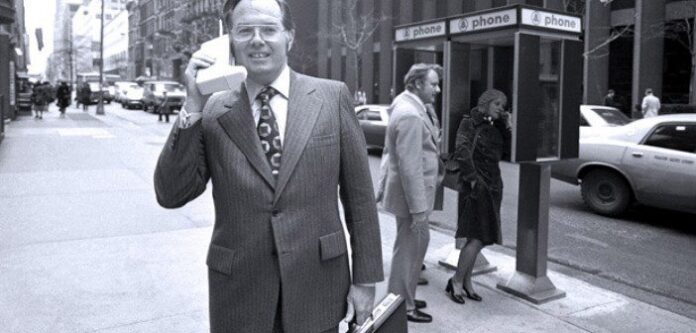Editor’s Note: RCR Wireless News goes all in for “Throwback Thursdays,” tapping into our archives to resuscitate the top headlines from the past. Fire up the time machine, put on those sepia-tinted shades, set the date for #TBT and enjoy the memories!
Study indicates 21% of Americans consider cutting the cord
WASHINGTON-More than one in five people with a mobile phone has considered cutting the cord, the Pew Internet & American Life Project said Sunday. “For some of the most enthusiastic tech users in America, the wireline telephone may be going the way of the transistor radio,” said John Horrigan, the author of the report. The October survey of 1,677 Americans examined the use of high tech in American life. Mobile-phone use was just one of several categories studied. … Read moreStudy indicates 21% of Americans consider cutting the cord
Senate passes anti-spam bill
WASHINGTON-Legislative relief from spam, including wireless devices, moved one step closer Tuesday when the Senate passed the Can Spam Act by voice vote. “We have all seen the negative impacts of spam and know that the toxic sea of spam threatens to engulf the very medium of e-mail. The passage of the Can Spam Act will help to stem the tide of this digital train wreck,” said Sen. Conrad Burns (R-Mont.), chairman of the Senate communications subcommittee and a sponsor of the bill. The bill passed by the Senate is slightly different from a version passed by the House by a 392-to-5 vote Saturday, so it must go back to the House for final approval. President Bush is expected to sign it. The bill includes a provision seeking to ban transmissions of unsolicited commercial e-mail to mobile phones without prior consent of subscribers. … Read more
800 MHz fight continues
WASHINGTON-The 800 MHz fight is heating up again as both sides argue that public-safety communications must be the overarching concern in any negotiation. The city of Baltimore weighed in against the Consensus Plan, while Nextel Communications Inc. produced two studies that claim the Consensus Plan is the best way to address harmful interference at 800 MHz. “We see the plan to change everyone’s frequency as an approach that hopes to solve the problems of entities that have not upgraded their equipment or have not installed state-of-the-art systems, while putting those who have done the job properly at risk. We cannot provide more money, and we cannot put the operational or financial integrity of our public-safety system in the hands of a private entity. Our police officials see no possibility that any retuning plan advanced so far would build a redundant second system that would not require the shutdown of our existing equipment until a new system with the same capability were fully operational. That is the only acceptable way to protect our citizens. Any other system is courting disaster at a time when our nation’s security has never been more at risk,” said Baltimore Mayor Martin O’Malley. The Baltimore letter is in direct contrast with two studies submitted by Nextel, which claim the benefits to society outweigh the benefits Nextel would receive. … Read more
AT&T Wireless buys South Texas operations from U.S. Cellular
U.S. Cellular Corp. entered into a definitive agreement to sell its TDMA wireless operations in South Texas to AT&T Wireless Services Inc. for $95 million in cash. The operations include 25 megahertz metropolitan statistical area and rural service area licenses currently serving 74,000 customers and covering 1.3 million potential customers and approximately 150 cell sites. The MSA operations include Corpus Christi, Laredo and Victoria, Texas, while the RSA operations include Texas RSAs 18, 19 and 20. “This transaction is further affirmation of our strategy to exit markets that are not strategic to the company’s long-term success,” said John Rooney, president and chief executive officer of U.S. Cellular. “These properties, while valuable in their own right, neither complement the geographic footprint of the company nor strengthen its competitive position in its larger, more well-established markets.” … Read more
Check out the RCR Wireless News Archives for more stories from the past.

